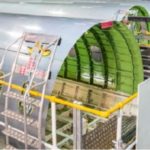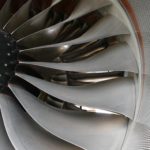ZeroAvia has completed the world first hydrogen fuel cell powered flight of a commercial-grade aircraft. The flight took place last week at the company’s R&D facility in Cranfield, England, with the Piper M-class six-seat plane completing taxi, takeoff, a full pattern circuit and landing.
The flight is the first step to realising the transformational possibilities of moving from fossil fuels to zero-emission hydrogen as the primary energy source for commercial aviation. ZeroAvia’s flight was made just days after Airbus unveiled designs for three hydrogen-powered concept aircraft.
ZeroAvia believes that hydrogen-powered aircraft will match the flight distances and payload of the current fossil fuel aircraft. The milestone towards net zero emissions is part of the HyFlyer project, a sequential R&D programme supported by the UK Government and follows the UK’s first ever commercial-scale battery-electric flight, conducted in the same aircraft in June.
“Passengers could be boarding zero-emission flights soon”
ZeroAvia CEO Val Miftakhov said: “It’s hard to put into words what this means to our team, but also for everybody interested in zero-emission flight. While some experimental aircraft have flown using hydrogen fuel cells as a power source, the size of this commercially available aircraft shows that paying passengers could be boarding a truly zero-emission flight very soon. All of the team at ZeroAvia and at our partner companies can be proud of their work getting us to this point, and I want to also thank our investors and the UK Government for their support.”
ZeroAvia will now turn its attention to the final stage of its six-seat development programme – a 250-mile zero emission flight out of an airfield in Orkney before the end of the year. The demonstration of this range is roughly equivalent to busy major routes such as Los Angeles to San Francisco or London to Edinburgh.
“Momentous day for aerospace”
Commenting on the achievement by ZeroAvia, Professor Iain Gray, Director of Aerospace at Cranfield University, said: “This is a momentous day for the aerospace and the aviation industry. Arguably, this is as a big a moment in aerospace as any in the last 75 years, comparable with the first flight of the jet engine.
“Thanks to ZeroAvia, it is fantastic to see the UK leading the world in moves to zero-emission aviation and this could be the start of the UK leading the world in a new generation of hydrogen aircraft. We are tremendously proud that ZeroAvia has chosen to develop their technology at our global research airport and we look forward to continuing to support their efforts.”

